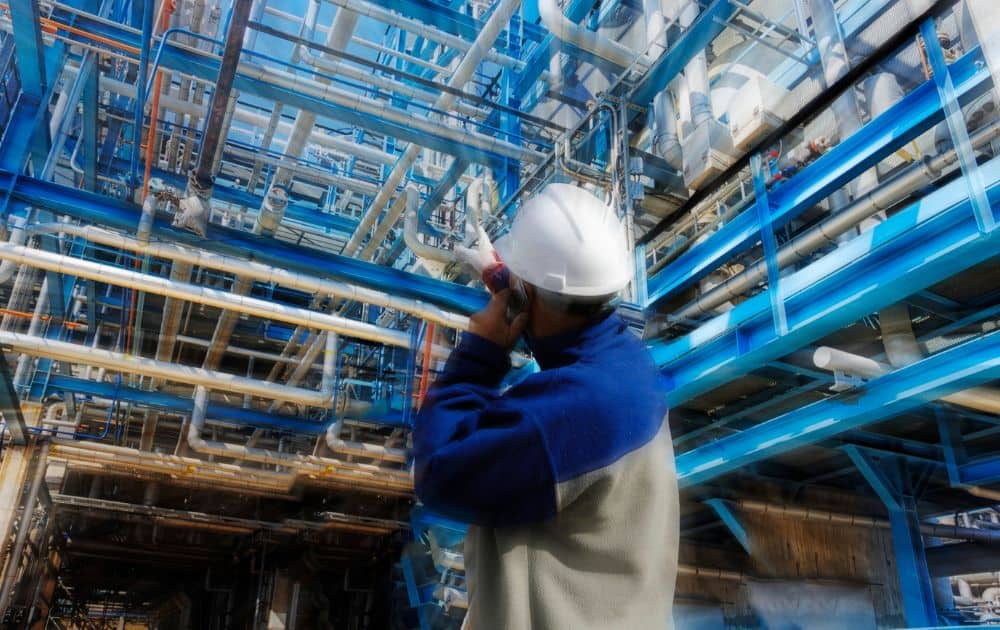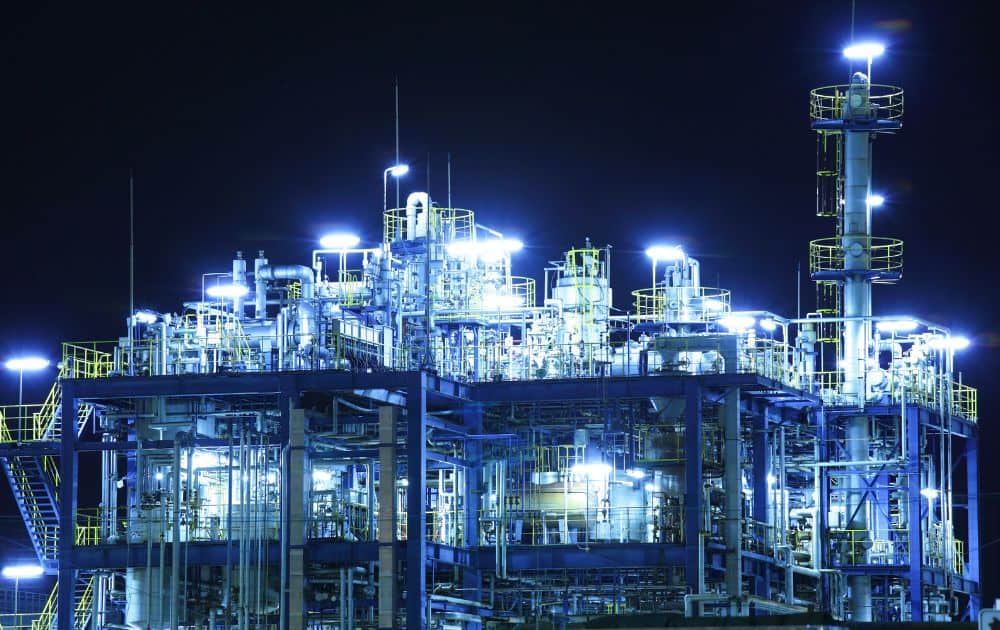The oil and gas industry is vital, but it's under increasing threat from cyberattacks. These attacks can disrupt operations, cause environmental damage, and even endanger lives. Fortunately, there are steps oil and gas companies can take to improve their cyber resilience!
Why is Cybersecurity Important?
The oil and gas industry is a critical component of the global economy, keeping homes and businesses warm, vehicles fueled, and industries running. However, this very importance makes it a prime target for malicious actors in cyberspace.
The growing value of business data, the vulnerability of increasingly networked systems, and the critical role that fuel infrastructure plays in daily life all contribute to the urgent need for robust cybersecurity in the oil and gas sector.

A Treasure Trove for Hackers
Oil and gas companies hold a wealth of sensitive data that attackers find highly valuable. This data can include exploration and production information, intellectual property related to proprietary technologies, financial records, and customer details. A successful cyberattack could allow hackers to steal this data for their own financial gain and disrupt operations.
Increased Network Vulnerability
The oil and gas industry is undergoing a rapid digital transformation. Traditional, isolated systems are being replaced by interconnected networks that allow for real-time data collection, improved efficiency, and remote monitoring. While these advancements offer significant benefits, they also introduce new vulnerabilities.
Legacy systems, not originally designed with cybersecurity in mind, are now connected to the internet, creating potential entry points for attackers. Additionally, the growing use of smart devices and internet-connected equipment in oil and gas operations expands the attack surface for malicious actors to exploit.
Cascading Impacts on Infrastructure
A successful cyberattack on a major oil and gas company can have far-reaching consequences. Disruptions to pipeline operations can lead to fuel shortages, causing panic buying, price hikes, and economic instability. Furthermore, attacks on critical infrastructure like refineries or storage facilities could have devastating environmental consequences.
The Human Cost of Cybercrime
Cyberattacks can also have a human cost. Breaches of safety protocols due to compromised systems can lead to accidents and injuries for workers in the field. Additionally, widespread disruptions to fuel supplies can impact emergency services and transportation networks, hindering response times and potentially putting lives at risk.
The Colonial Pipeline Example
A stark reminder of the potential consequences of cyberattacks in the oil and gas industry is the 2021 Colonial Pipeline ransomware incident. This attack crippled a crucial pipeline supplying nearly half of the East Coast's fuel, leading to gas shortages, price hikes, and economic disruption. The incident highlighted the urgent need for robust cybersecurity measures.
The Cost of Waiting
The oil and gas industry faces a double threat: a rapidly growing cybercrime landscape and a critical shortage of cybersecurity professionals. Delaying investment in cybersecurity could have severe consequences for businesses in this sector.
One of the most significant challenges is the widening cybersecurity talent gap. Industry leaders predict this gap will not shrink anytime soon, and it's likely to worsen in the coming years. This shortage is partly due to the increasing demand for cybersecurity professionals across various sectors, all struggling with their own unique cyber threats.
For the oil and gas industry, this translates into a decreased ability to hire and retain qualified personnel. These professionals are crucial for developing robust cybersecurity policies, creating in-house security tools, and staying ahead of evolving cyberattacks.
Camille Stewart, a cybersecurity expert with experience in both public and private sectors, emphasizes the multifaceted nature of this problem. She observes that many smaller companies fail to prioritize cybersecurity, leaving them vulnerable to cyberattacks despite the growing number of ransomware and supply chain attacks.
Another significant hurdle is the difficulty in identifying and attracting qualified candidates. Even organizations with open positions often struggle to fill them due to a lack of understanding about the talent pool and how to effectively recruit.
Stewart emphasizes the need to diversify the cybersecurity workforce. The industry has traditionally relied on high and often unnecessary certification requirements, creating barriers to entry for talented individuals. These requirements can exclude individuals who possess the aptitude and eagerness to learn the necessary skills on the job.

Taking Action Now is Critical
The oil and gas industry cannot afford to wait for another major cyberattack before taking action. Investing in cybersecurity is not just about protecting sensitive data and financial assets; it's about safeguarding critical infrastructure, ensuring the continued flow of essential resources, and protecting the safety and well-being of the public.
The World Economic Forum (WEF) offers a clear roadmap for oil and gas companies seeking to bolster their cyber resilience. Their "Playbook for Boards and Corporate Officers" outlines six key principles derived from the collective experiences of industry leaders. These principles provide a framework for implementing effective cybersecurity measures:
- Cyber Resilience Governance: Cybersecurity shouldn't be an isolated effort. Effective defense requires buy-in from all levels of the organization. Clear roles and responsibilities, along with strong leadership, are crucial for success.
- Resilience by Design: Security considerations shouldn't be an afterthought. Integrating cybersecurity principles from the very beginning of project planning and development helps to identify and mitigate vulnerabilities before they become operational problems.
- Corporate Responsibility for Resilience: Sophisticated attacks becoming more frequent. Companies, therefore, must take ownership of their cyber risk management, continuously evaluating and proactively addressing potential threats.
- Holistic Risk Management Approach: Cybersecurity shouldn't be treated as a separate issue. A comprehensive risk management strategy that integrates cyber risks alongside other operational risks ensures a holistic approach to secure the organization.
- Ecosystem-wide Collaboration: Weaknesses in any part of the energy ecosystem can be exploited to disrupt critical infrastructure. Open communication between oil and gas companies, and government agencies is essential for developing a collective defense.
- Ecosystem-wide Cyber Resilience Plans: Developing robust resilience plans allows organizations to respond to attacks effectively. These plans should include not only technical measures but also procedures for collaboration with industry partners.
By implementing these WEF principles and drawing on their existing expertise, oil and gas companies can build cyber resilience into their operations. This proactive approach is essential for protecting critical infrastructure, safeguarding sensitive data, and ensuring the continued delivery of reliable energy supplies in the face of evolving cyber threats.
Let Our Cincinnati Tech Experts Protect Your Organization!
The oil and gas industry can build a more secure future by taking proactive steps to address the cybersecurity talent gap. This requires a commitment to attracting and developing a diverse and skilled workforce capable of protecting critical infrastructure from cyberattacks.
LK Tech offers a comprehensive suite of IT services in Cincinnati, Ohio designed to help companies identify and mitigate cyber risks and develop a robust cybersecurity strategy. Contact us today to learn more about how they can help your organization stay ahead of cyber threats!


